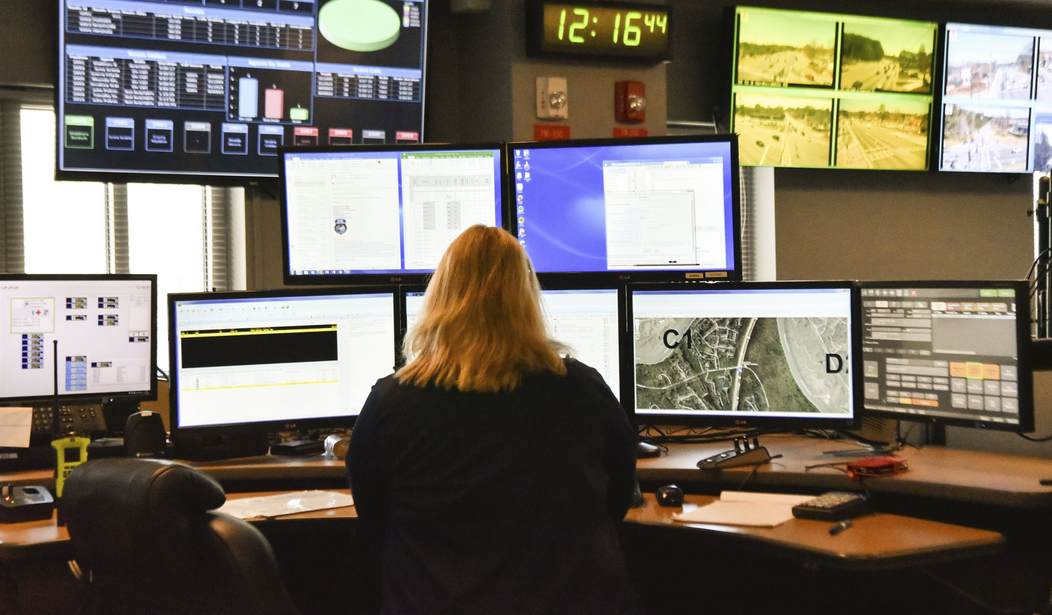As anti-war protests grow more frequent and intense throughout Russia, thousands of Russian citizens have been and continue to be arrested and detained or imprisoned. But not all these people are being arrested on-scene at protests. In many cases, they are being arrested days later, as Russian authorities obtain the identity of every person present at protests via tracking data provided by Russian mobile operators.
One can only imagine how many Russians will be arrested now that the Kremlin has cracked down even more on freedom of expression by making “the dissemination of falsehoods about the use of Russia’s armed forces” a criminal offense. Under this edict, crimes could include phone calls, texts or emails that contain anything the Kremlin deems “false” about the regime and/or the military. The penalty? Up to 15 years in jail.
This Orwellian reality might easily be chalked up to the sinister excess of a desperate authoritarian regime on the other side of the planet--were it not for the fact that mobile operators in Europe, Asia and even in Canada and the United States all collect the location, identity, text messages and phone calls of every user on their networks and then turn over this data to governments, often without any warrant necessary.
Another recent example comes from Canada, of all places. After the protests of “Freedom Convoy” truckers were forcibly put down, many additional interrogations and arrests were made and are still being made by the Royal Canadian Mounted Police as mobile operators readily give up the phone records of citizens who happened to be located where protests took place.
Here in the United States, the “Select Committee to Investigate the January 6 Attack on the United States Capitol” is demanding from mobile operators, without having any warrants, detailed mobile phone data on both elected officials and private citizens who might have been in the area of the Capitol on that day or might have communicated with others about the activities that unfolded. Many of those now being tried for alleged crimes related to January 6 were identified via mobile data handed over to the FBI by the likes of Verizon, AT&T and T-Mobile—again, often without a warrant.
Recommended
The Bill of Rights guarantees U.S. citizens freedom of speech, freedom of assembly and freedom to demand redress from their government. Unfortunately, mobile providers ceaselessly monitoring and storing our location, identity, internet activity, text messages and calls (down to with whom we speak, when, how often and for how long) is quickly having a “chilling effect” on the exercise of these freedoms—especially as people come to understand that they so readily share this data with governments.
In response, many suggest that we should demand that Congress pass laws to protect Americans’ freedoms and stop such egregious surveillance by mobile operators. Unfortunately, there is not much likelihood that Congress will ever take such action. Big Tech companies and mobile operators that collect and share this information with the government are two of the biggest spending sectors on lobbying in Washington DC. Too many members of Congress have too much to lose by proposing any sort of truly meaningful legislation.
If We the People want to protect our freedoms against industry and government overreach, then we will have to arm ourselves with the tools and knowledge to do it on our own.
Realizing this, I founded Volta Wireless, to help provide those tools and knowledge. Many others in the tech industry with similar concerns about privacy and personal freedom have also launched efforts to address these issues through the free market. As a result, people have the tools to free themselves from the constant surveillance of tech companies, mobile operators and government, and more options are finding their way to the market every day. Now it is up to all of us to get the word out, and to start using these tools to take back our freedoms.
David Sinclair is a veteran telecommunications and technology executive and the Founder and CEO of Volta Wireless.

























Join the conversation as a VIP Member